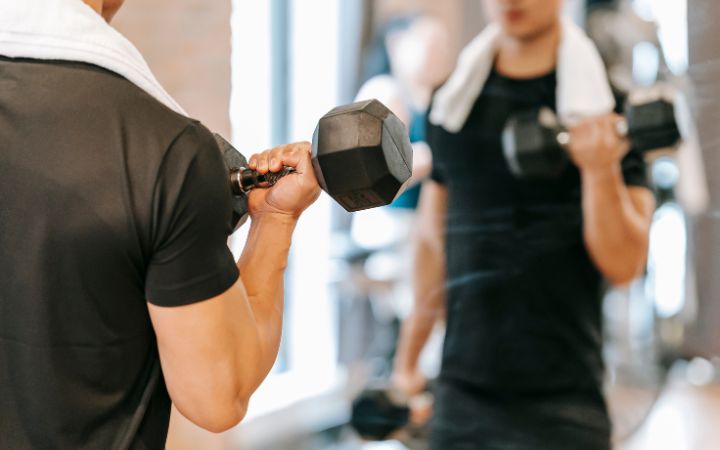In this blog we’re going to focus on triggers and how to manage them. So one thing that surprises a lot of people is that you can and probably will suffer from withdrawals after your quit date. Your body is going to be very confused at first and you will experience changes. Everybody is different though.
Withdrawal Symptoms
Some people experience withdrawal symptoms immediately after quitting while others go through a honeymoon phase, which is like a state of euphoria and then experience withdrawal symptoms after. Some common symptoms of withdrawal are anxiety attacks, panic attacks, low mood, sleep disturbances, headaches, fatigue, agitation, mood swings. Less common side effects are flu-like symptoms, body aches, muscle tension, and nausea. If you experience any of these symptoms just know that it’s your body’s natural way of re-regulating itself and returning back to its baseline. It can be difficult sometimes to focus when experiencing withdrawal symptoms so just be patient with yourself and the symptoms should ease within 30 days.
P.A.W.S.
After 30 days, you may experience something called post acute withdrawal syndrome with are the symptoms of withdrawal after you have already fully withdrawn and if that happens just know that it’s generally temporary and usually only last for a few minutes or a few hours at the most and sometimes PAWs can lead to a common trigger so if you know it’s happening you can stop a potential trigger before it starts.
H.A.L.T.
Triggers are common and you’ll experience more of them in the beginning. If you are prepared ahead of time though you will be able to work through them without relapsing. So if you are experiencing a simple trigger or even PAWS later in your recovery, I want you to always first remember to HALT. Most simple triggers happen when you are hungry, angry, lonely or tired. When you halt. Work through the acronym to find out if there is something you can solve immediately internally or with your environment. If you’re hungry, grab a healthy snack, if you are angry, maybe some meditation or deep breathing, if you are lonely can you call someone or chat in a support group, if you are tired, can you take a nap? If after halting and trying to meet your basic needs, you are still feeling triggered it may be time to try other things. When you are the middle of an emotional trigger, it’s impossible to be creative and think of ways out of it but if you are prepared and have a list of things you can do and refer to it easily you’ll have a much better chance at getting through that emotional trigger.
Prepare
So what I want you to do now is think of things that you can do if you have an internal trigger or external trigger or trigger warning and write them down somewhere where you can easily access them at any time. Make sure this list includes a wide variety of things that range from easy activities to rather large activities. For example, taking 10 deep breaths might be something you put on your list or going on a 5 mile run. You’ll want to have things on your list that are physical like taking a walk around the block or a taking a cold shower, you’ll want to have things that are helpful psychologically like for example a 10 minute meditation from youtube or writing in your journal and you’ll want to include things that involve other people like calling a best friend or taking your kids to the park. Make sure you include things you can do at home and also things you can do in public. Sometimes getting out of the house is best while other times you can easily work through a trigger by doing something at home.
Reality Checks
When you are working through a trigger one thing you can do is give yourself a physical sensation such as a pinch on your hand. This can be used a reality check to bring yourself back to the present moment.
Journal

Keeping a journal will also help you to be able to analyze what’s lead up to it and the impact of triggers. You can look at things such the time of day, maybe it was a traumatic experience or thinking about past or original trauma. Did you have any feelings of abandonment? Also, note anything that physical such as low blood sugar or maybe you were on your menstrual cycle. You should also look at your environment and the type of event leading up to it. When you are prepared you will be able to spot trigger warnings and you will then have methods you can use to avoid a full on sensory trigger.
Mental Health
It’s important to take care of your mental health at the same time. If you are struggling with a mental health condition or have any mental health concerns such as depression, anxiety, post-traumatic stress disorder, etc. or if you struggle with a substance use disorder such as alcohol use disorder then it’s important to talk to a mental health professional at the same time. Treating a mental health condition or disorder will help reduce triggers in the long run. Check out our course for a holistic approach for kicking your sex, porn, or masturbation addiction.



 By submitting your contact details, you are providing your data to Center For Sex, Porn And Masturbation Addiction who may contact you.
By submitting your contact details, you are providing your data to Center For Sex, Porn And Masturbation Addiction who may contact you.